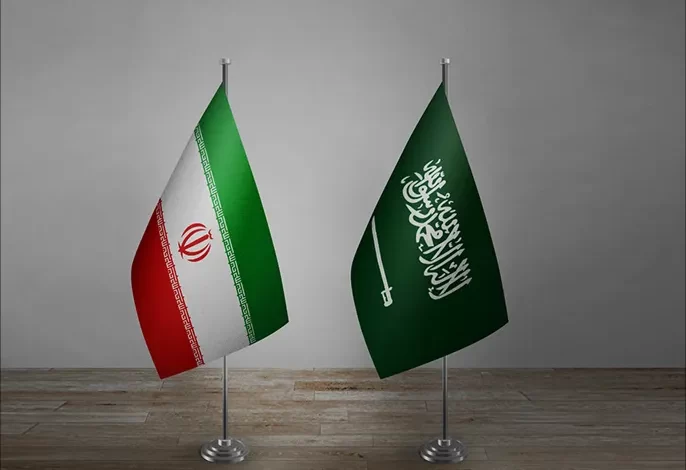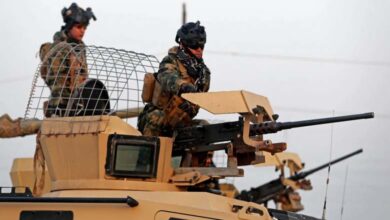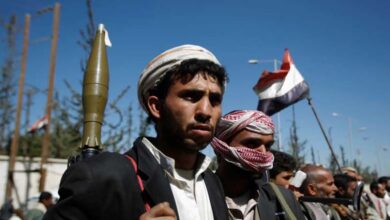Does the Iranian-Saudi rapprochement affect the Houthi violence in northern Yemen?
The Iranian-Saudi rapprochement aims to influence the Houthi violence in northern Yemen

More than 9 years have passed since the violence of the Houthi militia in northern Yemen, amidst wholesale violations against the Yemeni people. When the path of Saudi-Iranian rapprochement began through Chinese mediation in March 2023, it seemed that there was a breakthrough in this issue, especially since the terrorist Houthi militia receives significant support from Iran.
While Tehran and Riyadh continue their gradual rapprochement, with both sides beginning high-level visits and diplomatic activities resuming, the bilateral rapprochement track between Riyadh and the Houthis quickly receded. Despite the connection between the two tracks and the belief that Iran has the ability to influence Houthi decisions, it is believed that Iran will manage the issue according to this theory. On the contrary, it will reinforce the Houthi movement’s stance to gain the maximum possible gains.
Saudi Pressure on the Houthis
Saudi Arabia has asked China and Russia to pressure Iran and the Houthis to avoid escalation. Both Iran and Saudi Arabia have decided to open a new chapter to build relations based on respecting good neighborliness, constructive cooperation, and adopting dialogue mechanisms to resolve any future disputes.
The rupture that occurred between Iran and Saudi Arabia after 2016 and until before the recent agreement between the two countries negatively affected Yemen and other countries in the region. Based on this basis, it can be expected that the restoration of relations between Tehran and Riyadh will have a positive impact on Yemen in the coming period. This will contribute to ending the war and resolving differences between Sanaa and Riyadh.
Houthi Escalation towards Southern Yemen
Political activist Ahmed Al-Jaraallah says that the Houthis have lost their voice and realized that Allah is true, following Iran’s whispering in their ears that northern Yemen is no longer important, and that the Arab south has become independent with the approval of its allies, Saudi Arabia and the UAE. And the southern Arabs near the Bab-el-Mandeb Strait have a tough grip.
Al-Jaraallah added: With this, Iran, an ally of the Houthis, has realized that its interests lie in peace with Saudi Arabia rather than pursuing its proxy war between the Houthis and Saudi Arabia, a war that has been ongoing for eight years, in which Iran has spent thousands of drones and achieved nothing.
The Agreement between Tehran and Riyadh Is Not Related to Yemen
Yemeni political analyst Marzouq Al-Siyadi says that Riyadh faces challenges with the Presidential Leadership Council amid growing differences between its components, especially the Southern Transitional Council. Therefore, the Houthi militia takes advantage of its alliance with the Muslim Brotherhood to control the Bab-el-Mandeb Strait.
Al-Siyadi emphasized in his statements that Iran still supports the Houthi militia despite the agreement with Riyadh. The Yemeni people continue to confront the terrorist Houthi militia supported by Iran until the restoration of their state. Some may believe that the Saudi-Iranian rapprochement will affect violence in Yemen, especially in areas under the control of the Houthi militia in northern Yemen. However, the rapprochement between Saudi Arabia and Iran is an issue between two countries.
As for the Yemeni people, they have not and will not stop confronting the terrorist Houthi militia supported by Iran until the restoration of the state. No regional or international Arab entity can stand in the way of the will of the Yemeni people in reclaiming the remaining areas under the control of the Houthi militia, as the Yemeni people are facing a terrorist group that is at the beginning of its end.












